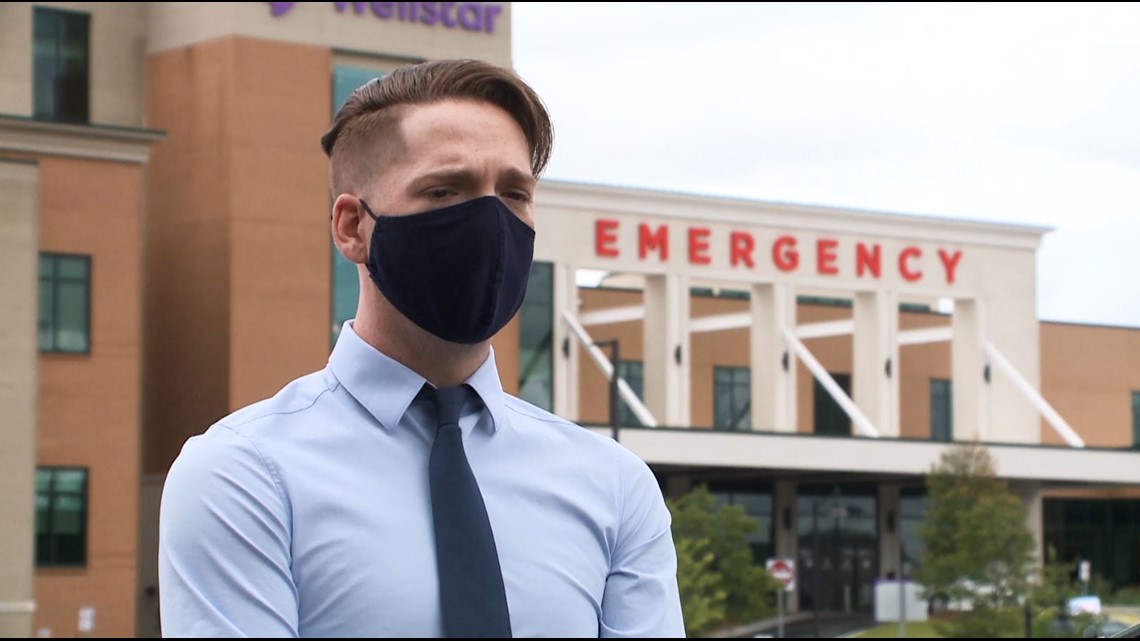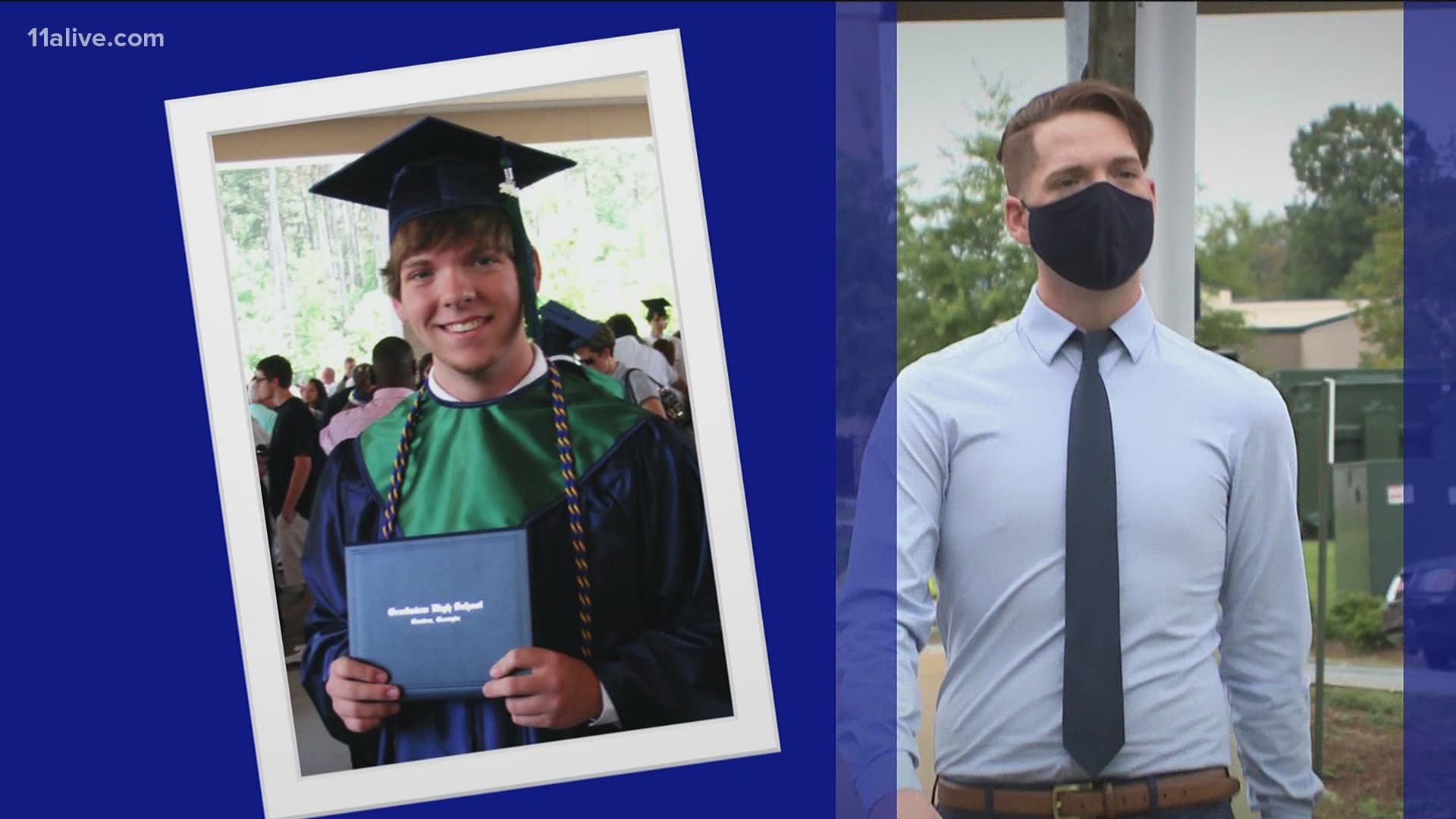ATLANTA — Isaac Kelley is a nationally registered paramedic with MetroAtlanta Ambulance Service. It wasn’t the profession he originally imagined for himself.
“When I was 18 and fresh out of high school, I was terrified of needles, terrified of blood,” Kelley remembered.
He planned to become a school teacher. Then both of his grandmothers got sick when he was in high school, changing his career path.
“Helping my family take care of them, watching them slave over every decision and not know the answers. I wanted to be the one that knew what to do," Kelley said.
As of Tuesday, 30,388 people in Georgia have gone to the hospital, some in a Metro Atlanta ambulance. 7,657 people have died from COVID-19 and Kelley has been there for that too.
RELATED: Frontline medical worker at Grady talks about family's sacrifice, personal toll during pandemic


Kelley remembers one call early in the pandemic, a man that despite potential COVID-19 symptoms, didn’t want to go to the hospital. Six days later, Kelley was back at his house. This time the man was in cardiac arrest.
“That's really when I mean, my partner and I looked at each other and we went, this is, this is the real deal," Kelley explained.
Even though the virus is less likely to be fatal for those in Kelley's age group, he said it can still be tough to beat. He’s watched for weeks now as a coworker struggles to recover.
“Very nearly had to be put on a ventilator and she still can't make it up a flight of stairs without stopping halfway. I asked her, compare this to the flu. And she said, it's like the flu doesn't end," Kelley said.
So far, 20,779 Georgia health care workers have tested positive for COVID-19. We don’t know how many of those are paramedics.
Dennis Westover, the Director of Special Events for MetroAtlanta, said history has helped prepare us for this event. In 2003, he said SARS created a new system of distributing healthcare alerts and medical supplies. MRSA in 2010 raised important questions about testing distribution systems and triggered training for worldwide pandemic events. Ebola in 2016 led hospitals and governments to stockpile specialized medical equipment.
Even Hurricane Katrina and Rita provided important training opportunities. Westover said MetroAtlanta led the effort to evacuate more than 1,700 storm victims in a matter of days and that all patients were treated as if they had contagious diseases.
But COVID-19 is far more prevalent.
“So now every patient contact we were in N95 masks we wear face shield or eye protection, at a minimum. If we suspect they may have COVID 19, we go add a gown," Kelley said.
COVID-19 still accounts for more than 11 percent of hospital patients in Georgia. In the central part of the state, the number more than doubles to 23 percent. Kelly said he is worried what history will say when it tells the story of this pandemic.
“My fear is that we are going to realize when this is over, when we learn more about the data, that we lost a lot of people that we didn't have to lose because people weren't taking just the small steps, the small precautions weren't taking it seriously," Kelley said.

